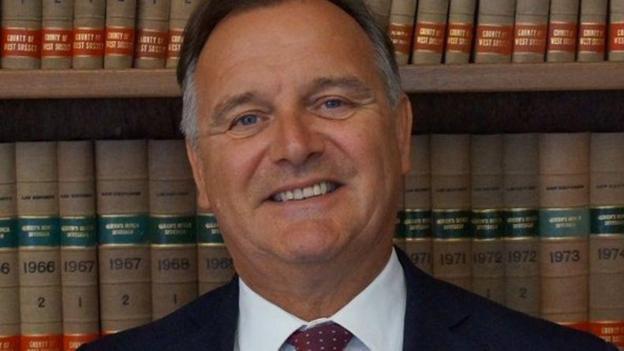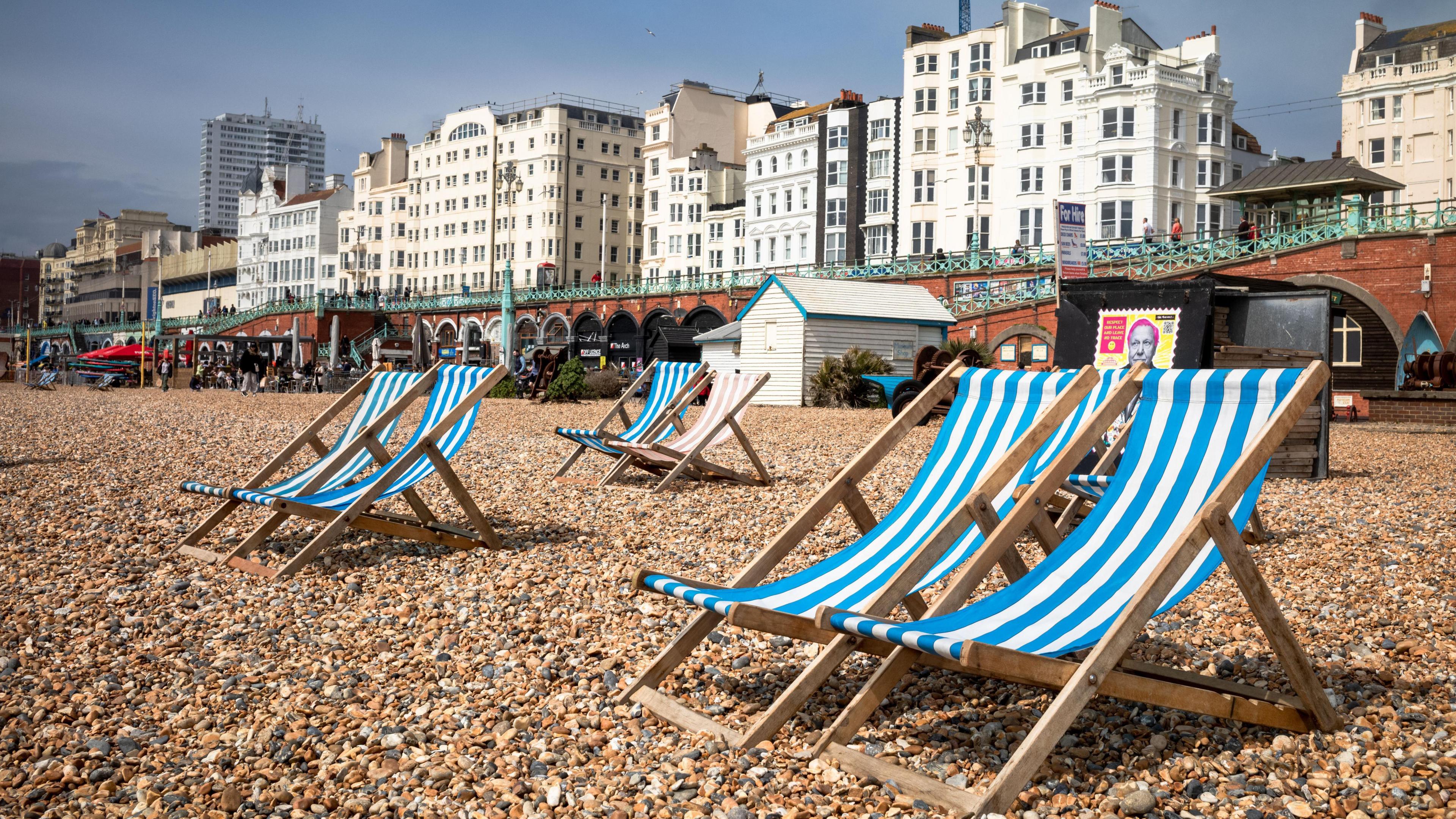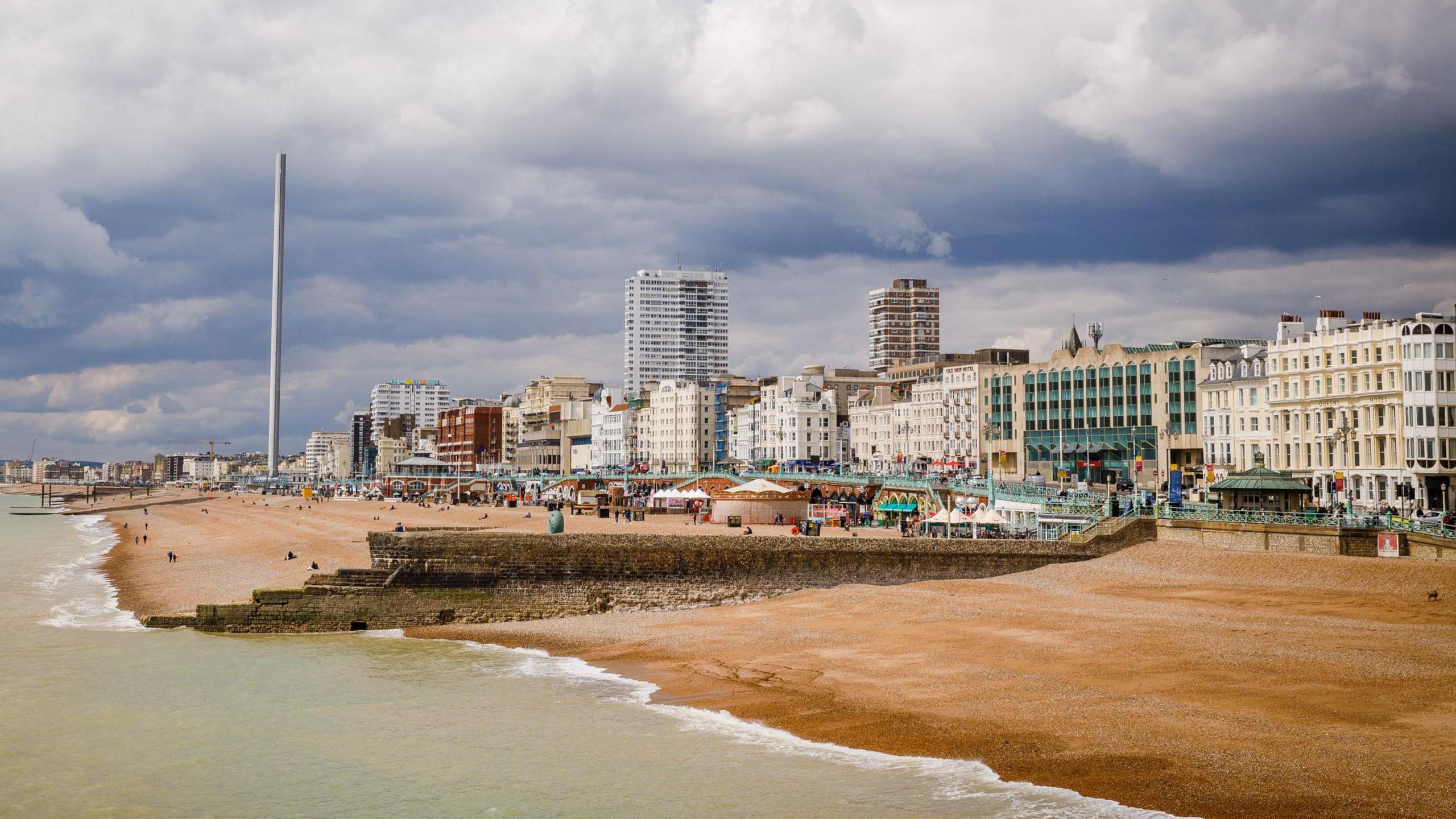Row over voting powers of £1bn new mayoral body

Paul Marshall says Brighton and Hove having equal voting power would be disproportionate
- Published
Plans to give Brighton and Hove equal voting power to make strategic decisions for Sussex would be "disproportionate", the leader of West Sussex County Council (WSCC) has said.
When Sussex elects its first mayor in May 2026, a mayoral combined authority (MCA) will be formed – made up of representatives from West Sussex, East Sussex and Brighton and Hove.
While West Sussex and Brighton and Hove represent 52% and 16% of the population respectively, current plans would see each holding 33% of the voting power.
Brighton & Hove City Council leader Bella Sankey said its proposal for five new unitary authorities from 2028 would create fair and equal voting powers.
The new mayor and the MCA will make strategic decisions for the whole of Sussex, a population of 1.7 million residents, on housing, infrastructure, the economy, environment and public health and safety, including police and fire services.
Current plans also state that if the mayoral office had a financial shortfall, the councils would contribute "bailout" funding based on population, leaving WSCC liable for 52% of the cost.
WSCC leader Paul Marshall said: "I have gone back to my colleagues and said I want to mitigate the risk for West Sussex, and I want that risk to be proportional to the voting rights for each member."
East Sussex has a population of 550,000 residents, representing 32% of the population.
'Equal voice'
The government is introducing mayors and replacing county, borough and district councils with unitary authorities across England, and Sussex is part of its Devolution Priority Programme.
It has been confirmed that the new mayor and MCA will have a budget of £1.1bn over the next 30 years, equivalent to £38m per year.
It has also been allocated a £1m set-up fund and £3m over the first three years.
Councillors across Sussex have been calling for a multi-year settlement in government funding to give financial certainty, instead of receiving funding information year-by-year.
Marshall said he also objected to plans to call the new MCA Sussex and Brighton, instead of Sussex.
He said while former deputy prime minister Angela Rayner had rejected his feedback, he hoped newly appointed housing secretary Steve Reed may reconsider.
The MCA would only be formed of members of the current Brighton and Hove, East Sussex and West Sussex councils for its first two years.
From 2028, they will be replaced by members from the new unitary authorities, which will replace those bodies to run local services.
Sankey said her council's proposal to divide Sussex into five unitary authorities of 300,000 to 400,000 residents would mean "our communities would have an equal voice around the table and parity of funding and representation."
Follow BBC Sussex on Facebook, external, on X, external, and on Instagram, external. Send your story ideas to southeasttoday@bbc.co.uk, or WhatsApp us on 08081 002250.
- Published19 September

- Published10 July
